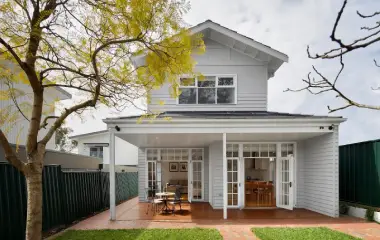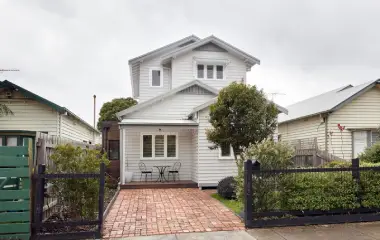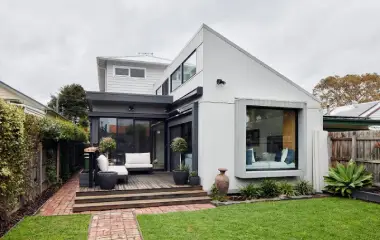Get more room in your home with Supa Group
It’s time to turn the home you bought into a home that’s designed and built for your specific tastes. But if you’re planning to do major work on your home, the big decision is whether to renovate or rebuild. In either case, you have the potential to create your dream home.
While you may already have grand plans for what you want to achieve with your home, it might not be clear whether you should expand on your original home, or knock it down and rebuild it from the ground up.
[tip_box]This article explains some of the key benefits of each option and looks at how a home extension can be a viable way to expand on your existing footprint and give yourself the room you crave.[/tip_box]
Renovation vs rebuilding
A renovation refers to the process of working within your existing home’s footprint and making improvements to rooms with building work and cosmetic enhancements, such as paint and floor coverings.
A renovation might include making over a bathroom or kitchen to give you more space or additional features. Renovating can involve big changes, but it will ultimately work within your existing home framework.
A rebuild involves demolishing your existing home to make way for a whole new home.
Renovation or rebuild: which should you choose?
When contemplating which is the best option for you there are a number of factors to consider.
1. Budget

[tip_box]The first and most critical factor for many homeowners is the overall cost.
- If you are looking to make a number of structural changes you may find that it is more financially beneficial to start from scratch by knocking down your home and rebuilding.
- If you are looking to add some extra rooms and wish to retain the original features of your home a home extension is a great way to add the space you need while staying within your budget.[/tip_box]
When looking at a home extension you have the option of choosing a ground floor extension or a second storey extension. Or you could have the best of both worlds and go out and up. Each option comes with its own set of benefits and costs which it is worth discussing with your builder.
2. Style and objective
Many clients who choose a home extension are in love with certain period or original features in the home, but just need more room for their family. You risk losing some irreplaceable features if you do opt to knock down and rebuild.
You should also consider your streetscape. There’s nothing like the cohesiveness of a neighbourhood with houses all of the same style from the same era.
On the other hand, if you own a home with limited period features and no real integrity to the construction you may be leaning towards a full rebuild.
Make sure you consult with your relevant council to find out if there are restrictions on renovating or extending your home, as some homes do have heritage protections in place, preventing demolition.
3. Floor plans

[tip_box]Some homes lend themselves to a renovation and home extension with easy access. Other homes have tight spaces and offer a challenge when it comes to making updates. It is worth considering how significantly you wish to change your home and base your decision on what option provides the best value.
- If you are looking to extend your original home it is worth consulting with a builder who specialises in ground floor extensions.
- If you want more room but have limited space on your ground floor, consider a second storey extension as a way to increase your living space. [/tip_box]
4. Planning and duration
Whether you are looking to knock down and rebuild or if you are opting for a home extension, there are permits and planning permissions that need to be sought. Consideration needs to be given to state and local government planning laws which dictate setbacks and height limits. If your project sits within the guidelines, while you still need to get a building permit, you may not need to go through a planning process with the local council.
Think about how long a renovation will take compared to a knock down and rebuild. You will have to move all of your furniture out, put it in storage, and rent somewhere else while the knock down rebuild takes place.
With a home extension you may be able to stay in your home while construction is taking place.
%2520(1).webp)
Contact Supa Group for expert advice
At Supa Group, we know the importance of quoting accurately and completing projects on budget and on time. We have been working with Melbourne homeowners for more than 40 years providing home extension services to families looking for more room in the homes they love.
The decision to knock down and rebuild or extend your home will be largely dictated by how much you love your home and how much you wish to retain its original charm and integrity. While a knock down and rebuild may save you money in the short term, the long term street appeal of an original home can pay off in the long term.
[free_consultation]Want to get a quote on your building works? Speak to our team today. We are committed to providing the best advice and design services.
[/free_consultation]

.webp)
.webp)


.webp)












